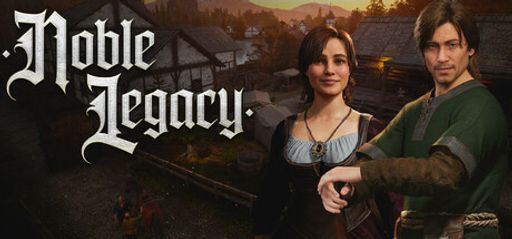I came into Noble Legacy expecting a city-builder similar to Banished or Foundation, but with a third-person view. What Studio 369 has made so far is a fresh mix: part city sim, part life-sim RPG. You walk through your town, gather resources, carry items, and chat with villagers. As someone who likes to test systems and squeeze out efficiency, I found the core loop engaging and full of little puzzles to optimize — even if the Early Access build still feels rough.
Overall Impressions
What stands out is how close the game feels. Unlike most top-down city-builders, you play as a villager yourself. This changes how you plan. Seeing a tavern fill with people or a harvest move from field to storage feels satisfying. Steam Workshop and prefab tools also make building and sharing easy, helping creative play thrive.
But the game struggles with weak AI and missing tools. Villagers freeze, skip jobs, or get stuck often. Combat, diplomacy, and families are planned but not in yet, so the systems feel thin compared to bigger city-builders. Still, if Studio 369 delivers even half its roadmap, this could stand out.
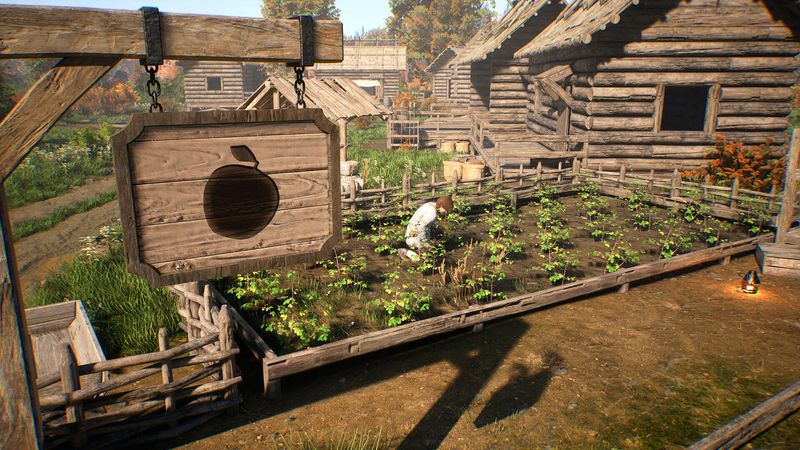
Gameplay Mechanics
The mechanics show promise. You can assign jobs, design towns with prefabs, and manage resources while living among villagers. Placement tools are easy to use, and decorating or adjusting buildings is smooth. Uploading and sharing layouts adds variety, while villager traits bring depth. Gathering resources feels direct, and mod support adds replay value.
On the downside, poor pathfinding forces too much micromanaging. Job limits reduce flexibility. Missing tools, like recipe pinning or blueprint-only placement, create friction. Speedrunners may enjoy optimizing villager builds, but most players will face redundant work and heavy oversight until the AI improves.
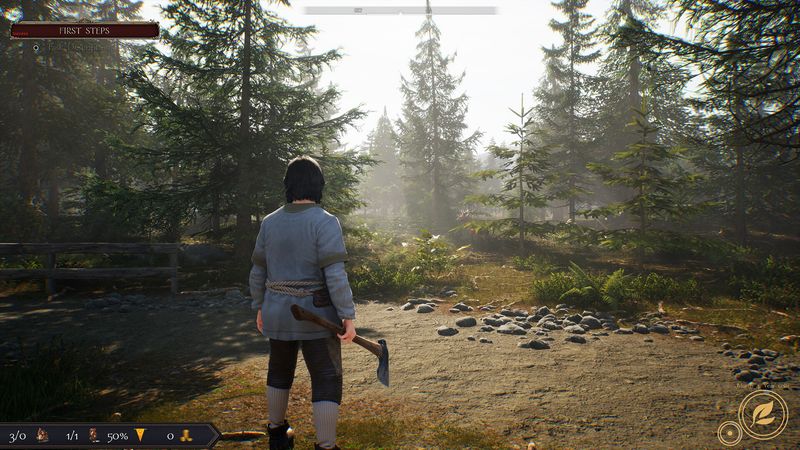
Story and Characters
At present, Noble Legacy avoids scripted storytelling. Instead, the narrative emerges from villager interactions. Because of this, charm comes from small character details: Harold’s laziness, Fernando’s charisma, or a barfly’s growth into a tavern hand. These touches make management personal. Nevertheless, world-building remains light. Yet planned features like families and diplomacy could transform such moments into lasting arcs.
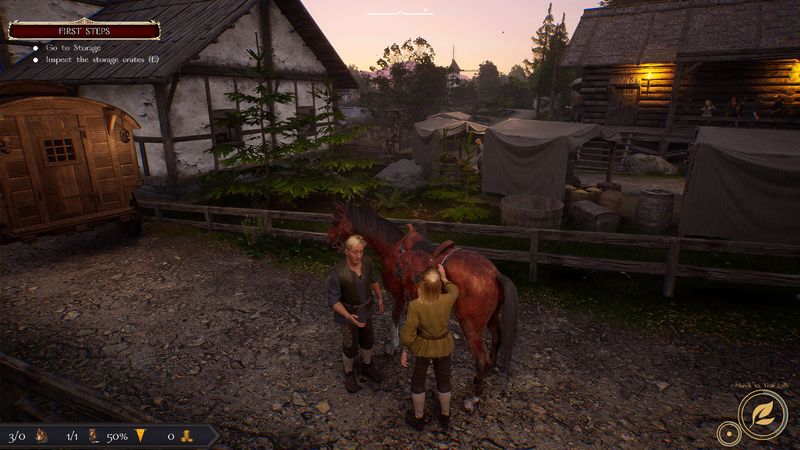
Visuals and Graphics
The visuals are warm and slightly stylized, which fits the game’s tone. As towns age, buildings look lived-in, while storms create tension and atmosphere. In addition, performance has been steady throughout my sessions. However, crowd behavior and animations still need variety. Still, for a small indie studio, the graphics exceed expectations and set the mood for medieval life convincingly.
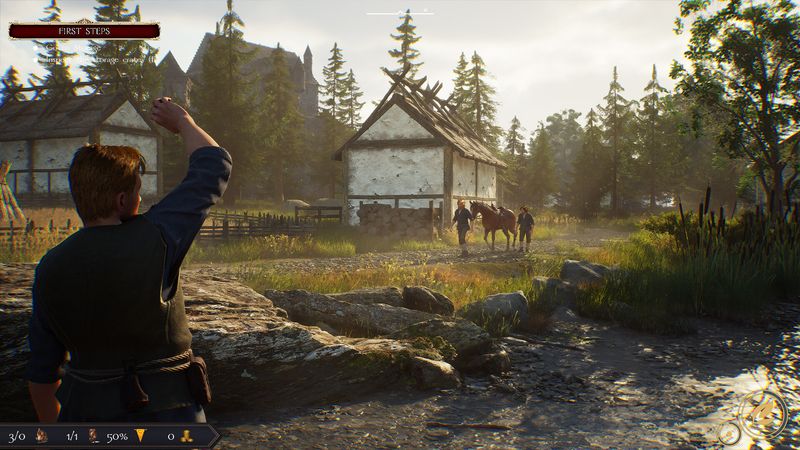
Sound and Music
Sound design is another strength. The clink of tools, tavern chatter, and rainfall immerse you fully in the setting. Moreover, the soundtrack complements the atmosphere without growing repetitive. Although no standout voice acting exists yet, the audio already supports immersion better than the AI does. Consequently, the soundscape feels polished compared to gameplay systems.
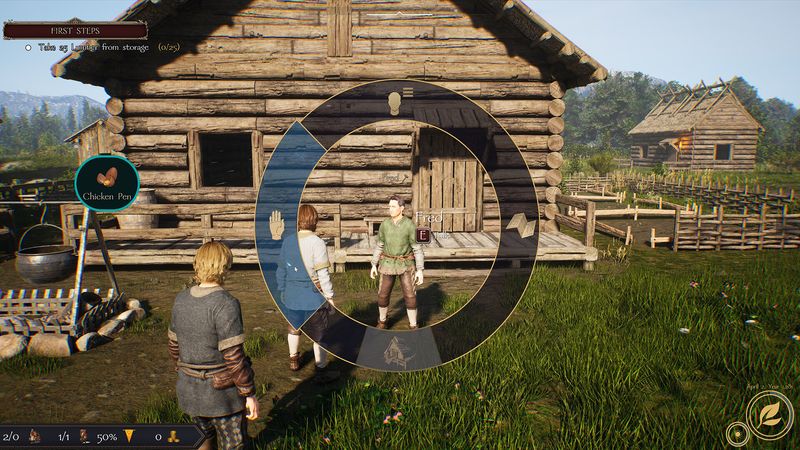
Difficulty and Replayability
Currently, difficulty is forgiving. The main challenge lies in inefficiencies and AI quirks. Nonetheless, replayability benefits from creative playstyles and modding. For example, one run may focus on trade, while another emphasizes crafting. If Studio 369 implements diplomacy, trade routes, and families as planned, replay value will expand significantly. Therefore, the game has long-term potential beyond its current scope.
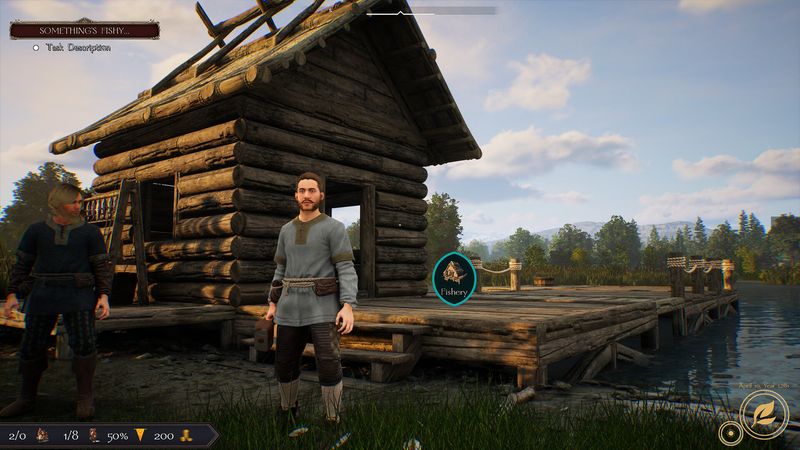
Tips and Strategies
For efficient progression, storage placement is crucial. Therefore, cluster production near storage to minimize walking. Prefabs help standardize layouts, so proven designs can spread quickly across towns. Additionally, assign villagers by traits—strength for mining, charisma for trade, and research for libraries. This strategy boosts flow and creates stronger growth foundations.
When NPCs stall, reassigning roles or adjusting workstation placement often solves pathfinding issues. Furthermore, saving often and experimenting with build orders ensures stability. Prioritizing basic supply chains before specialization keeps momentum strong, whether for efficiency or speedrunning. As a result, towns develop smoother and progress more quickly.
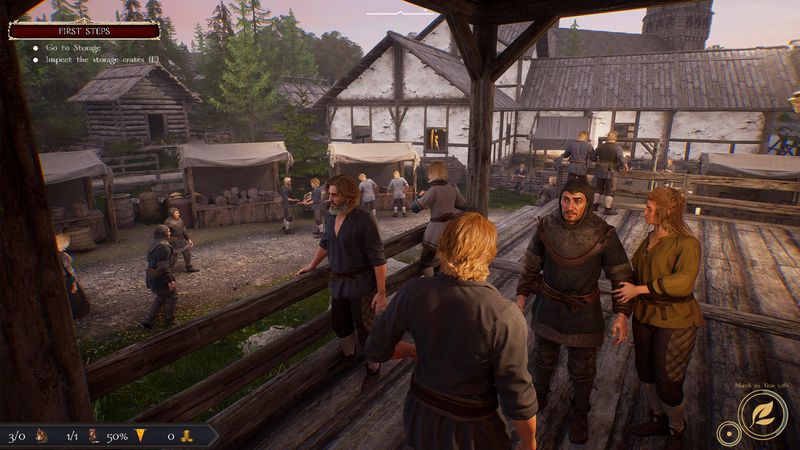
Behind The Scenes & Trivia
Studio 369 is a small team, yet their roadmap and community engagement remain ambitious. Moreover, publisher Ultimus Rex LLC supported the Early Access release on Aug 12, 2025, which expanded visibility. Since then, regular updates and Workshop integration have signaled the studio’s commitment to long-term development.
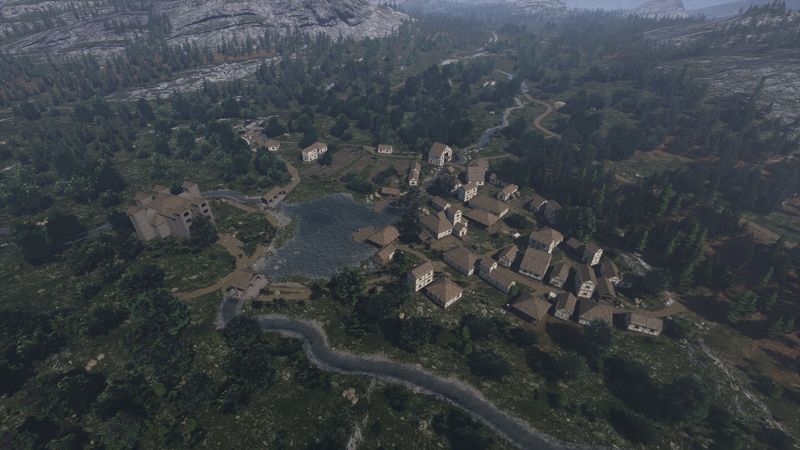
Final Thoughts
Noble Legacy rests on a charming and promising foundation. It already distinguishes itself by offering a hands-on approach to city building that rewards micro-optimization. Furthermore, if AI improves and planned systems arrive, this could evolve into a modern classic. Therefore, even in Early Access, it feels like a very strong start.
Rating: 4 out of 5 stars

